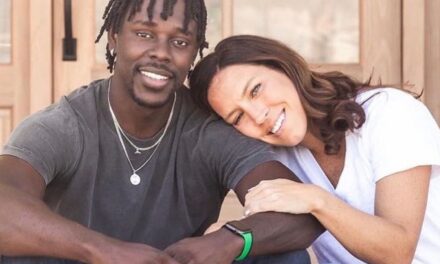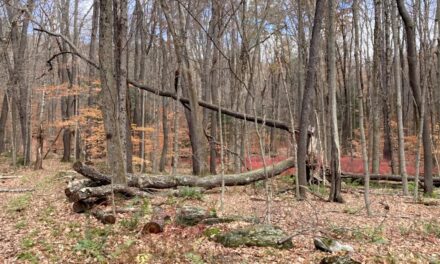Indianapolis’ Democratic Mayor Joe Hogsett and his Republican challenger Jefferson Shreve sparred during this election’s first mayoral debate Sunday night on issues ranging from food deserts to policing.
Organized by the African American Coalition of Indianapolis, the debate was livestreamed by the Indianapolis Recorder and Radio One with the intention of allowing the candidates to lay out their respective plans for supporting and uplifting the Black community.
In the first mayoral election after the nationwide racial justice protests of 2020, which included protests in Indianapolis, race issues have featured prominently in many voters’ minds.
Here are the takeaways.
Hogsett, Shreve made pitch to Black voters
The moderators indicated that many people have found it hard to distinguish between Hogsett and Shreve.
“I’m the one with the busted lip,” Hogsett joked, pointing to the split lip he was sporting after a fall earlier this week required him to get stitches and miss events until Saturday.
Hogsett highlighted the diverse leadership in his administration, including two deputy mayors who are women of color, Judith Thomas and Lauren Rodriguez, plus the construction of a new Community Justice Campus, increased police accountability and the creation of the first chief diversity officer role.
“I can promise you going backward is not our destiny,” he said.
Shreve promised increased minority business participation, anti-displacement plans, incentives to combat food deserts, enhanced public safety without over policing, a new approach to mental health crises and increased youth mentorship.
“I’ll be accountable for my actions 24/7,” Shreve said.
Policing and the Black community
Hogsett said the Indianapolis Metropolitan Police Department has made it a priority to go into the community to recruit Black, Latinx, women and other people of diverse backgrounds so that the department looks like the city they are sworn to protect, as well as to improve the relationship between police and the Black community.
“Too many of our neighborhoods feel as though they are policed and not protected and served. We’ve got to change that mindset.”
Indianapolis mayoral election 2023:‘Reckoning:’ Racial justice, equity issues take center stage in Indy mayor’s race
Shreve said that IMPD must have enough bench strength to conduct true community policing and become a part of neighborhoods and not just show up when violence happens.
He said he plans to raise veteran officer salaries to recruit more diverse officers.
Increasing police accountability and transparency
Police interactions have been a source of concern in the community. The Concerned Clergy of Indianapolis called on Police Chief Randal Taylor to resign after a Black motorist stopped for a traffic violation and was fatally shot running away from an officer in August. A total of 11 people have been shot by police in the first nine months of they year, all but one Black. Two police officers also have been shot.
IMPD:Indianapolis police shootings highest in years. What is going on?
Hogsett said that his administration’s record on police accountability and transparency is unprecedented and has made it a critical issue, working with the African American Coalition of Indianapolis to do so.
He cited how his administration required for the first time for officers to wear body cameras, created the first Use of Force policy, and is in the process of budgeting for dashboard cameras to increase police transparency.
Shreve said the use of technology is an enabling tool that Indianapolis has been too slow to adopt and he would accelerate that, questioning why dashboard cameras have not yet been implemented. He said he once served on the police body camera commission.
Food deserts
Shreve said he wants to see empty lots become productive, such as for grocery markets, and for the city to bring in grocery retailers.
“We have so many disused former Walgreens and CVS stores that can’t all become Dollar Trees,” he said, drawing laughter from the audience of more than 20 at the Urban League watch party.
Hogsett said he created the city’s first ever division to address food insecurity as well as the Lyft Indy program that provides $1 rides to grocery stores for residents who cannot easily access them.
Indianapolis food deserts:‘We’ve been neglected for years’: Indianapolis battles food deserts with new food division
On whether they would halt charter schools
Both candidates said they would not put a moratorium on new charter schools in response to a question about concerns that essentially charter schools divert resources from Indianapolis Public Schools.
Shreve said he is an advocate for charter schools and parental choice over which school their children attend. He said he would not place a moratorium on charter schools but would provide oversight and quality control over them.
Hogsett said his administration has set high expectations for charter schools and held operators accountable, focusing on quality over quantity of schools.
“If the students are not being well-served, we take action,” he said.
The housing crisis
Shreve said he would put tax caps on property taxes, particularly for older residents on fixed incomes, so that they would not be displaced as their neighborhoods receive more development and property taxes
“We can have development in our neighborhoods without displacement,” Shreve said.
Hogsett said there is no one solution to these issues, but cited the anti-displacement tax pilot program in the 2024 budget that will help residents in the Riverside neighborhood, the property tax relief program last year that helped 90% of homeowners, and the Vacant to Vibrant program that transforms abandoned homes into affordable housing.
To address homelessness, Hogsett also said he moved the city to a Housing First policy in 2016, increased permanent supportive housing units by 89%, and is creating a new low-barrier shelter and Housing Hub to help unhoused residents 24/7.
Shreve said he would continue the efforts to create the new shelter while doing some damage-control with neighbors in the Fountain Square neighborhood where the shelter is to be built.
Greatest accomplishment
Hogsett said the greatest accomplishment in his first term was the creation of the new Community Justice Campus and the Assessment and Intervention Center which was designed to keep people with mental health challenges out of jail and get them help.
In his second term, he said, he was proud of leading Indianapolis through the COVID-19 pandemic.
Shreve said from his time on the City-County Council, he was proudest of investments he saw coming into neighborhoods he represented on the Old Southside, Fountain Fletcher, and Bates Hendricks, that are stronger today than they were before.
The greatest contribution to Black residents
Asked about what they think their biggest contribution to the Black community has been, Hogsett said it is community-based policing and increased police accountability and transparency.
Shreve said he is proud of the vigorous campaign he has brought to make Hogsett fight harder to address needs of Black residents.
IndyStar archives contributed to this story. Contact IndyStar reporter Ko Lyn Cheang at kcheang@indystar.com or 317-903-7071. Follow her on Twitter: @kolyn_cheang.






